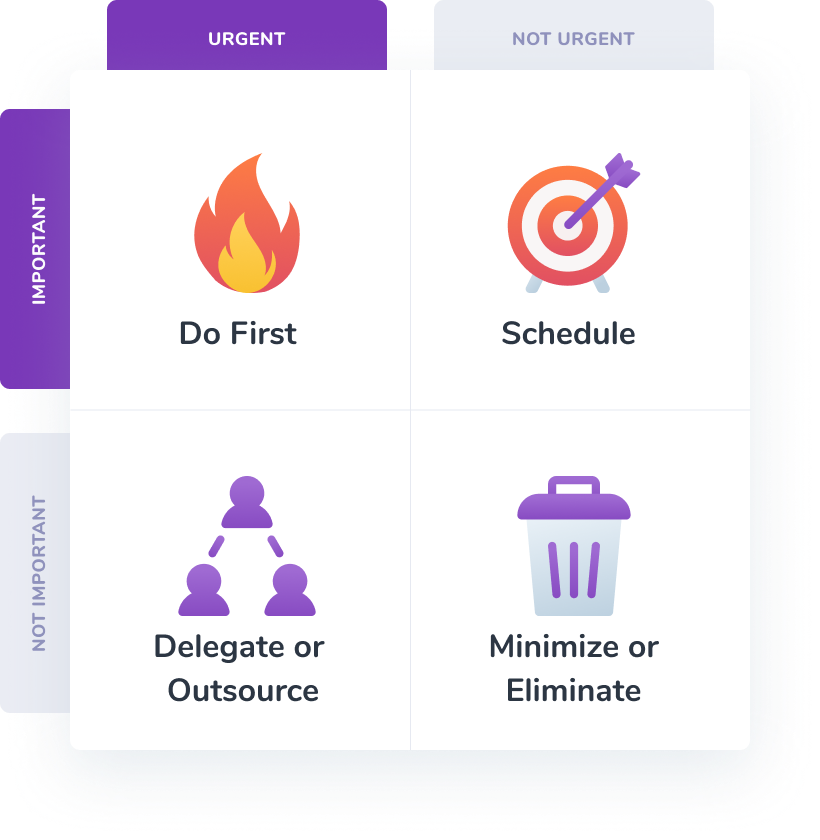Picture this: It’s mid-morning and you sit down at your desk with a big, hot cup of coffee.
The sun is shining through your office window. You boot up your computer, ready to knock out your first task: Scope yesterday’s transcript.
But instead of opening up your case software, you log into Facebook. “I’m just going to see if Jeanene’s daughter had her baby yet.”
Thirty minutes later, you’ve caught up with your entire family, commented on your crazy neighbor’s post, and shared a photo of last night’s pot roast.
Where did the time go?
If this sounds familiar, you’re not alone. Procrastination is practically a ritual for many court reporters and transcript professionals.
Procrastination is a bad habit — one we all want to fix. But true to our nature, we just never seem to get around to it.
No more excuses. In this final lesson on time management, we’re going to show you how to beat procrastination once and for all. Right now!
1. Break Down Big Tasks
Big, daunting tasks are one of the main reasons why we procrastinate. To-do’s like the 300-page “Jones transcript” that you still need to scope and proof can feel overwhelming. We know how long it will take, so we don’t even want to start!
If you find yourself balking at the sight of big projects, break them down into smaller, more manageable tasks.
For example, I sometimes struggle to get myself to the gym. When I’m feeling sluggish, I focus on just the first step: Put on workout clothes and lace up! I know that once I have my tennis shoes on, I’ll be more motivated to exercise. (I would have said yoga pants, but who am I kidding? I wear those all day every day.)f
You can do the same with your transcript work. The task, “Jones transcript,” can be broken down into 7 distinct parts:
- Write
- Scope
- Proof
- Index
- Agency Paperwork / Invoice
There is an alternative if you add in DELEGATE, which we discuss in Lesson 6: The Art of Delegation. If you’re using a scopist and a proofreader, then it looks more like this:
- Write
- Delegate (ideally in Stenovate, communicating all details and deadlines with a few easy clicks. See below.)
- Index
- Agency Paperwork / Invoice
It’s always easier to start a task when you have a clear idea of what needs to be done. Keep breaking down a task until it feels 100% doable. For example, if you decide to scope the job yourself, break it down into work sessions. If I can scope approximately 20 pages an hour, and it’s 100 pages, that will take me five scoping sessions (5 hours). When it feels more bite-sized, I can take the first step!
2. Delegate
Court reporters do. High-achievers DELEGATE.
As a reporter, you get paid for reporting, not the homework required to complete a transcript. If you want to grow your business, delegate your scoping and proofreading to capable help.
Delegation is a proven way to increase your income. It saves you hours of unpaid work each week, which you can use to take on more paying jobs. Some reporters have even doubled their income after hiring scopists and proofreaders.
Delegating requires a system to manage multiple projects at once. That’s where a project management tool like Stenovate can streamline your entire workflow.
3. Prioritize & Plan
Sometimes to-do lists grow and grow and grow until they have a mind of their own.
Long to-do lists can be intimidating and cause you to procrastinate. When this happens, take a close look at each task, and define which tasks are most important.
Chances are, a good portion of your tasks are actually nice-to-do’s — things that aren’t absolutely critical to do today, but others need to be executed (or at least started) right away.
Focus on your most important tasks, delegate what you can, and cut anything that’s eating up room on your list (that you may never do). This is the essence of productivity. You’ll get more done because of it. You may even have time to get back to those nice-to-dos down the road.
If you need a refresher on prioritizing, refer back to Lesson 2: How to Prioritize like Oprah and Eisenhower.

Not sure what tasks are necessary? Use the Eisenhower Matrix to help identify truly important tasks. You can learn about the Eisenhower Matrix in Lesson 2 of Stenovate’s time management course.
4. Trade Perfectionism for Peace
Procrastinators are hard on themselves. You know you can be more productive and do a better job. You expect perfection, which may be exactly why you’re struggling to get started on your work.
When you find yourself procrastinating, remember this mantra:
I am trading perfection for peace.
Perfectionism is stressful. It causes you to fall behind on deadlines and worry about little things that won’t matter in the long run.
Give yourself peace of mind by letting go of perfection and getting your work done. You deserve a break.
Getting started is the hardest part
If you’re a chronic procrastinator, it can feel impossible to break the habit. Trust me, I’ve been there.
But all the tips and tricks in the world won’t help if you skip the most important part: Getting started.
It sounds simple, but just getting started is the hardest part of beating procrastination. Set yourself up for success by blocking out distractions, breaking down big tasks into manageable bites, and delegating your work.
Breaking your procrastination habit takes time, but changing your attitude does not. Remind yourself:
“I CAN beat procrastination. I CAN get better. ONE step at a time.”
Follow the steps in this lesson to make progress little by little, every day.
Procrastination has ruled your life long enough. Your new life starts… NOW!
⬅️ Go to Lesson 6 | Try Stenovate FREE for 30 days

